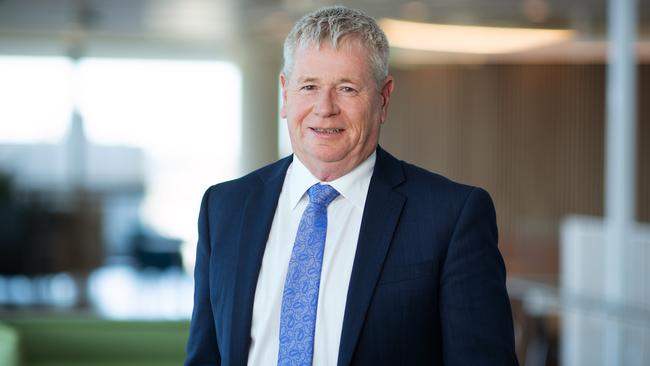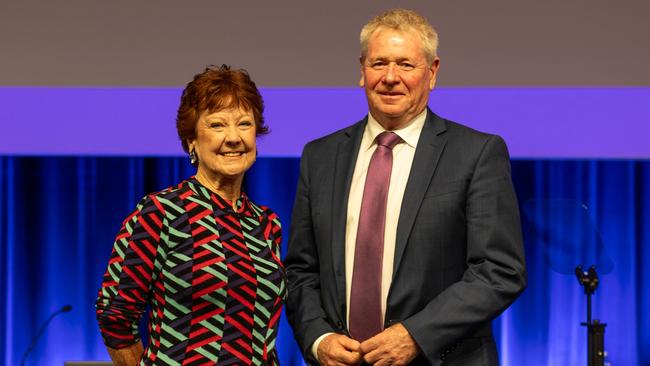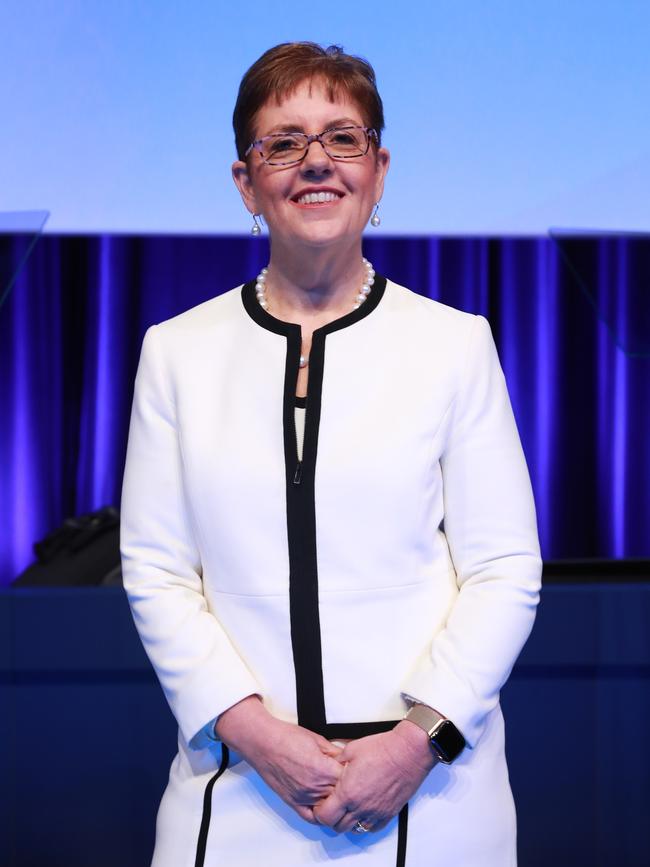AMP chair Mike Hirst calls for ‘better balance’ in financial advice sector
Australia’s financial advice model requires less complexity, with those who need guidance and assistance probably being priced out of the market, AMP chairman Mike Hirst has warned.

The nation’s financial advice model requires “a better balance” and less complexity, given those who need guidance and assistance are probably being priced out of the market, AMP chairman Mike Hirst has warned.
As the federal government drafts legislation for a second tranche of sweeping financial advice sector reforms, Mr Hirst said the clampdown on the industry after the Hayne royal commission had introduced warranted changes, but said the pendulum had swung too far on regulation.
“When you have these shocks … it’s like a pendulum, it swings right to the very end and then it comes back, and it never really seems to find equilibrium,” he said.
Mr Hirst noted that thousands of financial advisers had left the industry and outlined his hope that the government’s legislative response to lawyer Michelle Levy’s reform blueprint would go some way to making advice more accessible.
“The reality is the people who need the advice are the people who are probably being priced out of it,” he said. “Those who can afford it … they’re doing pretty well anyway.
“There does need to be a better balance found there and hopefully the Levy report is the basis of that.
“People need advice if they are going to grow enough of their wealth to cater for themselves in their retirement. They need help in doing that. It’s not an easy system to navigate … Something needs to give.”
AMP, founded 175 years ago, was one of the biggest casualties of the 2018 royal commission, which triggered an overhaul of its board and claimed the jobs of then chief executive Craig Meller and chair Catherine Brenner. The wealth giant’s advice business was embroiled in controversy across several areas, including charging customers fees for services that were not provided.
Mr Hirst was appointed to the AMP board in July 2021 and became chairman in April this year.

AMP’s advice business remains loss-making and last month the group announced it was retreating from the sector, as part of a two-pronged transaction.
Entireti – formerly Fortnum Private Wealth – is buying AMP’s advice licensees and Jigsaw, with AMP to retain a 30 per cent stake via a newly formed company.
The transaction will result in Entireti becoming Australia’s largest financial advice business service provider, with more than 1300 advisers.
Separately, AZ Next Generation Advisory is acquiring AMP’s minority stakes in 16 advice practices.
While the strategic moves are significant, AMP – led by CEO Alexis George – last month signalled it would book a loss of about $30m from the sale of its advice business over coming months.
Mr Hirst’s comments follow those of Insignia boss – and former AMP executive – Scott Hartley in March. Mr Hartley said among the unintended consequences of cleaning up the advice industry were further regulation, compliance and structures, meaning financial advice had become increasingly for the wealthy.
The industry is hopeful the second tranche of legislation will address a host of issues in the industry, including the hefty length of statements of advice and help to cut the cost of advice. The average annual cost of financial advice is more than $5000.
The first tranche of legislation relating to the financial advice reforms was passed in parliament in July.
“The government’s ‘tranche 2’ advice reforms, due to be introduced into parliament this year, will be a substantial package of legislation that has the potential to materially reduce the cost of financial advice for consumers,” said Blake Briggs, the Financial Services Council’s CEO.
The industry will be hoping the legislation is consulted on and introduced well in advance of a federal election next year.

Mr Hirst said AMP had changed following the royal commission, becoming a smaller and simpler organisation after divesting divisions including life insurance, infrastructure and real estate, meaning it was better positioned to manage risk and governance.
“To the extent that we can put in frameworks to help us know what we need to know, that’s being done,” he said. “But there are always unknown unknowns.”
However, Mr Hirst said he believed that the royal commission focused too much on the flaws of vertical integration – where banks and wealth groups both manufacture and sell products.
“In my mind it wasn’t vertical integration that was the problem, it was the remuneration practices that underpinned it,” he said. “If we had fixed those incentives and the remuneration, I don’t think we’d have had a problem.”
With inflation remaining sticky, Mr Hirst said he still didn’t expect the Reserve Bank to lower interest rates until next year even though domestic demand was moderating. “I don’t think we’re going to see a rate drop before Christmas, but certainly business confidence and other things would suggest we will see one early in the new year,” he said.
“All the savings … built up through Covid are starting to be drained, so I can’t see local demand continuing to stimulate to the point where we won’t see some rate cuts next year.”
Mr Hirst also said he expected banks would start to see “better returns” on mortgages and loans as the pressure on net interest margins subsided.
He cautioned that smaller banking players such as AMP were still at a disadvantage to the big four on capital and other requirements, but welcomed a federal review of the small and medium-sized banking sector.
“I don’t think it’s dire for the regionals,” said Mr Hirst, a former CEO of Bendigo and Adelaide Bank. “It’s certainly an uneven playing field … and it has been for a long period of time, predominantly driven by regulation.”
In July, the Council of Financial Regulators and the Australian Competition & Consumer Commission were tasked with conducting the banking review.
Mr Hirst did not rule out mergers and acquisitions by AMP, but said the group was seeking out organic growth areas in banking.
“I don’t believe that that’s (consolidation) necessarily on the agenda for us,” he said. “Of course you’d never say never, but we’re more interested in finding niches where we can play, that are underserviced and where new technology can assist you to make inroads.”
AMP expects to launch a digital bank targeting small and micro businesses in the March quarter.
Asked about when AMP may provide investors with details of a new dividend policy, Mr Hurst said: “We’d like to continue to be able to pay a dividend but … we’re still going through the buyback process and the right time for us to think about the dividend policy going forward is once that’s completed.”
Last month, AMP said its ongoing buyback would see it complete a $1.1bn capital return, committed to in August 2022.





